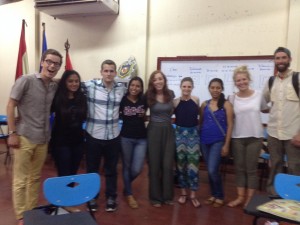In Nicaragua there are many differences in human rights compared to the United States. Por ejemplo, pedestrians do not have the right of way in Nicaragua. This example is among the most obvious but least significant differences.
In Nicaragua, women don’t have a right to financial independence. They have no avenues through which they could gain financial independence. It appears that women are largely expected to keep the home, take care of the children, and not have careers. This socialization makes it virtually impossible for women to pursue a different life, make their own money, and stop being dependent on someone else. This financial dependence means that many people (generally men) are able to abuse the women that depend on them without any repercussions. The legal system in Nicaragua doesn’t enfranchise the women of the country, making justice an elusive and nigh-unobtainable goddess. Because of the perpetual dependence on men and the machismo culture in Nicaragua, many women in Nicaragua don’t have the right to reproductive self-determination. Many of the community leaders that we’ve met with have told us that many young women here feel that their only chance for moving out of their parent’s household is to become pregnant with someone’s child, thus ensuring that they will be taken care of, but also ensuring perpetual independence. Many women are becoming pregnant at a very young age because of these notions.

